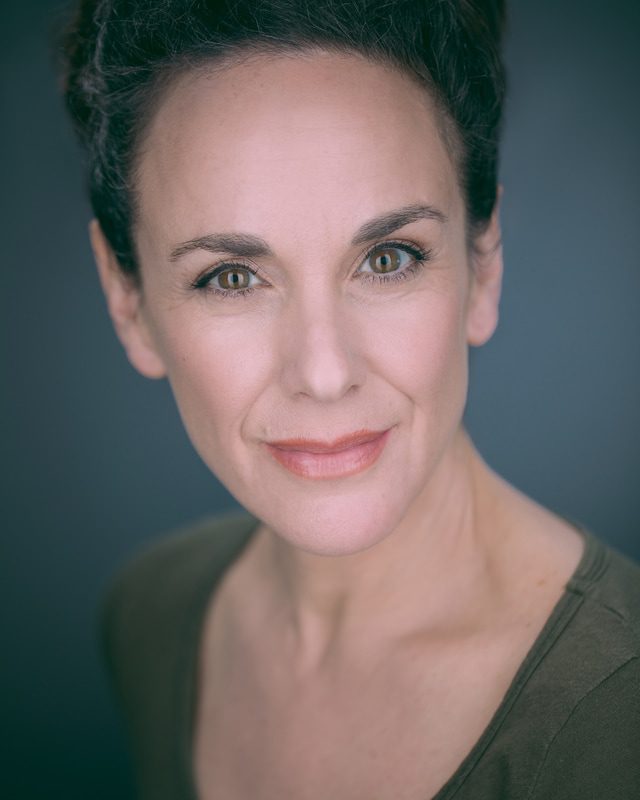The Spirit of Louise Nevelson at Theater J
By • October 24, 2019 0 1237

In days to come, visitors to Theater J’s newly renovated Aaron & Cecile Goldman Theater at the Edlavitch Jewish Community Center might feel some disturbances in the field, a persistent, spectral presence trying to come to permanent life.
That’s because the great and powerful American and Jewish sculptor Louise Nevelson will be in the house, in spirit and in the theatrical flesh.
By the time she died in 1988 at age 88, Nevelson had become almost a mythic being — self-created, it should be added. Her body of work, ranging from abstract, epic sculpture to jewelry, alongside haunting and dramatic photographs of herself, made her a potent artistic figure, at once knowable and elusive.
Here in Washington, she is daily with us in the form of several of her works, including her huge “Sky Landscape” at the corner of Vermont Avenue and L Street NW, a large steel sculpture at the National Institutes of Health and pieces in the collections of the National Gallery of Art and the National Museum of Women in the Arts.
From Nov. 7 to Dec. 8, she will also be among us at Theater J, a shadow portrayed, interviewed and interrogated in the play “Occupant.”
And another imposing shadow will be semi-present: that of the great modern American playwright and Nevelson friend Edward Albee, who wrote “Occupant” in 2001. It was first performed in 2008.
The inter viewer/inter rogator has sometimes been seen as a stand-in for Albee himself, who was not known for his lack of ego, so that their interaction onstage becomes a kind of struggle with unfinished business.
“Occupant” stars Susan Rome as Nevelson, a gift of a role for a diversely gifted actress well-known in the Washington area. Jonathan David Martin is her questioner.
“I am just eager to tackle this role. It’s tremendously challenging,” Rome said. “I was and am familiar with her work, everybody is, but I’ve spent hours researching. You have to. It’s an immense life.”
Rome is used to difficult characters. She won a Helen Hayes Award as the mother in “Brighton Beach Memoirs” at Theater J and played Mrs. van Daan in “The Diary of Anne Frank” at Olney Theatre Center. Taking on the life and times of Nevelson, however, also requires a kind of immersion into the artist’s oversized persona and impact.
“It’s acting, really acting. You get to know this woman, but it doesn’t mean you have to be her or that you’re somehow like her or she takes over your life,” Rome said. “She had a remarkable effect on women and their work and how women artists were viewed in the world of abstraction.
“I tend to have a generous view of the characters I play. She’s like a major landscape to explore, but, let’s face it, she was also a narcissist, and someone who in many ways created the story of her life. She invented and reinvented. And in the play, it’s more than an interview, it’s a little bit of combat, as the interviewer tries to get more out of her and she doesn’t want to give up parts of herself.
“I think Albee is very much present. There’s a part of him in that interviewer role,” Rome said. “He was a giant of a playwright himself, and they were very close friends.
By the late 1960s, Albee had also reached legendary status as the author of such plays as “A Delicate Balance,” “The Zoo Story” and, of course, “Who’s Afraid of Virginia Woolf?”
“Occupant” was meant to star Anne Bancroft, who became ill. The play finally had its premiere with Mercedes Ruehl in the role.
Aaron Posner, who is directing “Occupant” at Theater J, had a big success tackling “Virginia Woolf” in a powerful production at Ford’s Theatre several years ago. He also wrote the hugely successful “Stupid F——Bird,” a contemporary, almost jazzy riff on Chekhov’s “The Seagull.”
Posner, too, thinks Nevelson was something of a narcissist. “Albee’s plays are filled with the inner workings of complicated, problematic, remarkable human beings. Nevelson was one of those people.”
Nevelson came from what is now Ukraine, then part of the Russian and Romanov Empire, which always had a literary, even theatrical, costumed aspect to it. She was Leah Berliawsky before she was anything else.
By the time she rose to prominence, she was admired by many women as a feminist artist, something she dodged and rejected. “I am not a feminist artist,” she said. “I’m an artist who happens to be a woman.”
“This isn’t a typical Albee play by any means,” said Posner. “It’s not high-dudgeon drama, but an intricate, difficult kind of duel, almost. She and Albee were friends, and maybe there was a kind of competition. They were alike in many ways. He wanted to know what made his characters tick, probing. That’s what artists do.”
Nevelson and Albee, who died in 2016, remain as shadows, but Washington theatergoers will have a chance this fall to see them engage with one another again.

“Night Leaf,” 1969. Louise Nevelson. Courtesy Smithsonian American Art Museum.

